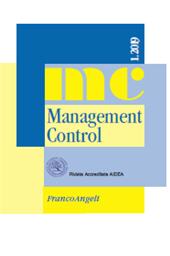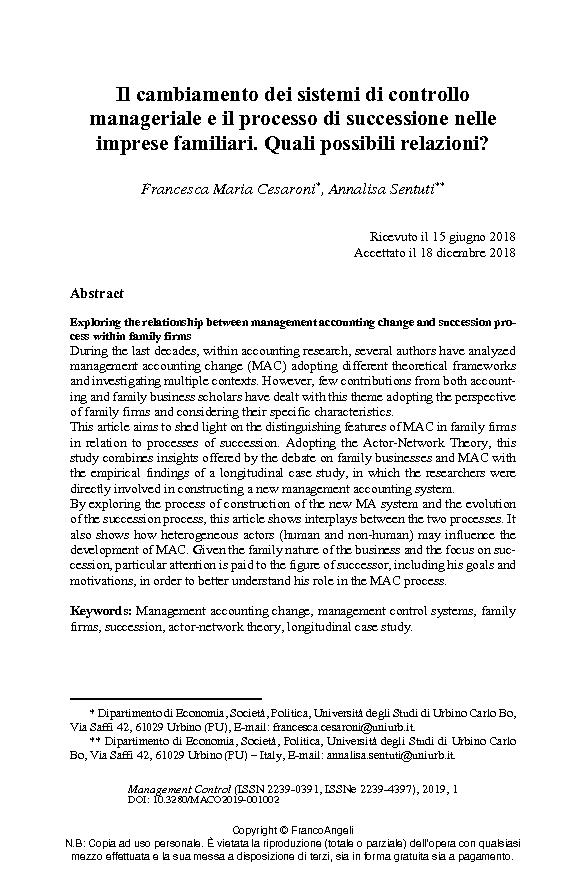Il cambiamento dei sistemi di controllo manageriale e il processo di successione nelle imprese familiari : quali possibili relazioni?
17-44 p.
During the last decades, within accounting research, several authors have analyzed management accounting change (MAC) adopting different theoretical frameworks and investigating multiple contexts. However, few contributions from both accounting and family business scholars have dealt with this theme adopting the perspective of family firms and considering their specific characteristics. This article aims to shed light on the distinguishing features of MAC in family firms in relation to processes of succession. Adopting the Actor-Network Theory, this study combines insights offered by the debate on family businesses and MAC with the empirical findings of a longitudinal case study, in which the researchers were directly involved in constructing a new management accounting system. By exploring the process of construction of the new MA system and the evolution of the succession process, this article shows interplays between the two processes.
It also shows how heterogeneous actors (human and non-human) may influence the development of MAC. Given the family nature of the business and the focus on succession, particular attention is paid to the figure of successor, including his goals and motivations, in order to better understand his role in the MAC process. [Publisher's text].
Fait partie de
Management Control : 1, 2019-
Articles du même numéro (disponibles individuellement)
-
Informations
Code DOI : 10.3280/MACO2019-001002
ISSN: 2239-4397
KEYWORDS
- Management accounting change, management control systems, family firms, succession, actor-network theory, longitudinal case study



